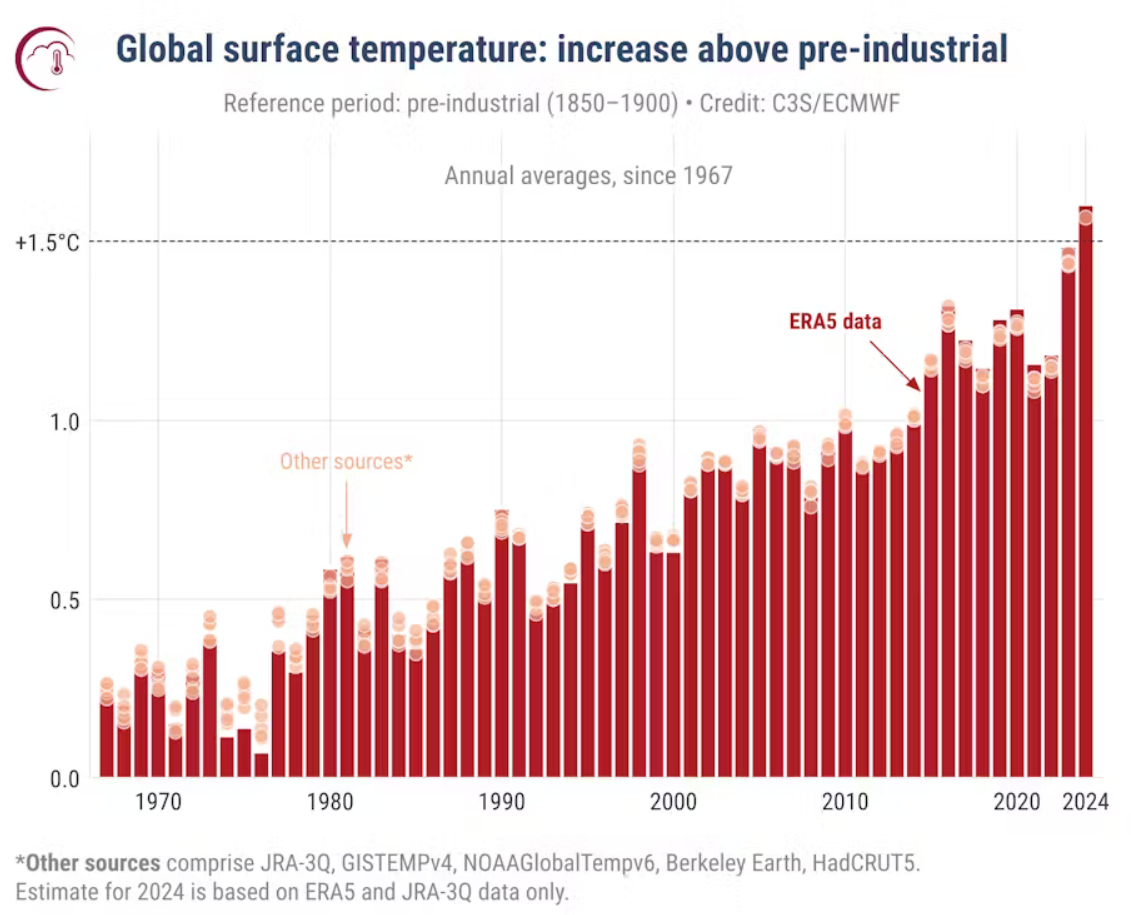New data from Copernicus, the European Union's climate change monitoring service, reveals that the world experienced the hottest February on record globally, with "exceptionally high" temperatures in both the air and sea. This record heat coincides with the U.S. grappling with extreme weather conditions, including spring- and summer-like temperatures, severe rain and flooding, significant snowfall, and fire weather conditions that led to Texas' largest-ever wildfire.
Rising Global Temperatures and Climate Change
The rise in global temperatures, fueled by climate change, has led to these extreme weather events, which are anticipated to become more frequent and intense as warming continues. According to Copernicus, the average global surface air temperature in February was 13.54 degrees Celsius (roughly 56.4 degrees Fahrenheit), 1.77 degrees Celsius above the pre-industrial average for February. This marks the ninth consecutive month where each month was the warmest on record globally, following the record-breaking warmest year in 2023.
The highest February temperatures, classified as "exceptionally high," were observed within the first two weeks of the month, with the daily global average temperature during that time reaching 2 degrees Celsius above the pre-industrial average on four consecutive days, from Feb. 8 to 11.
Impact on Oceans and Climate Thresholds
The world's oceans, which absorb 90% of Earth's heat, also experienced record high temperatures. Copernicus reported that the average global sea surface temperature for February was 21.06 degrees Celsius (69.9 degrees Fahrenheit), the highest for any month in the dataset. These elevated ocean temperatures exacerbate global warming by contributing to melting sea ice, rising sea levels, and increasing temperatures, all of which fuel extreme weather events and threaten marine ecosystems and economies.
Climate scientists have long warned of climate thresholds, such as reaching several years of global temperatures 1.5 degrees Celsius above pre-industrial levels, which pose a significant risk of extreme weather events. January marked the first time on record that global average temperatures reached the 1.5 degree warming threshold over a 12-month period. February surpassing those milestones indicates the continuation of human activities on a path towards surpassing these critical thresholds.
Impacts of El Niño and Human Activity
The recent records coincide with an ongoing El Niño event, characterized by "warmer-than-average" surface temperatures in the Pacific Ocean. This El Niño, which peaked in December, is gradually weakening but continues to impact the global climate. It is noted that human activity, specifically the burning of fossil fuels and the release of greenhouse gases, has contributed to this El Niño event.
In conclusion, while the data on record-breaking heat is remarkable, it is not surprising given the continuous warming of the climate system, which inevitably leads to new temperature extremes. Carlo Buontempo, director of the Copernicus Climate Change Service, emphasized the need to stabilize greenhouse gas concentrations to prevent further global temperature records and their consequences.




